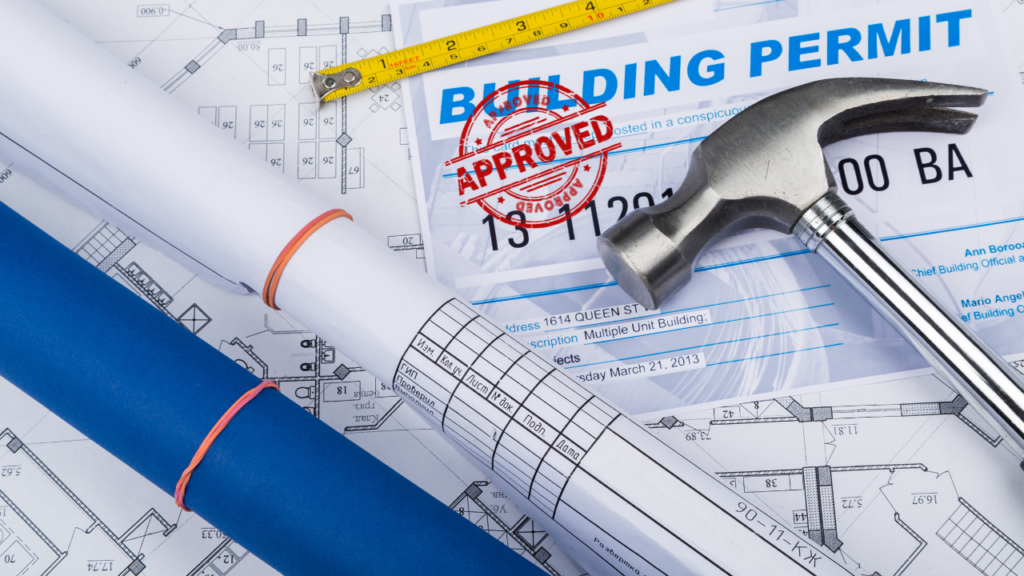Building a structure in Nigeria requires obtaining proper building approval from the relevant government authorities.
This process ensures that the proposed building meets established standards for safety, structural integrity, environmental impact, and zoning regulations.
Without proper approval, a building project may face legal challenges, fines, or even demolition.
Bullionrise consult outlined all the key requirements for securing building approval in Nigeria in this article, helping property developers, contractors, and individuals navigate the process effectively.
Table of Contents
Toggle
What Is Building Approval?

Building approval is a formal authorization granted by a government agency (usually the State Urban Development Authority or Town Planning Authority) that permits the construction of a building after verifying that the design and proposed structure comply with building codes, zoning laws, and safety standards.
See related – How do I Obtain Building Permits in Nigeria?
Why Is Building Approval Important?
- Ensures the safety and structural integrity of buildings.
- Ensures that buildings meet environmental and health standards.
- Protects property owners from future legal issues.
- Facilitates the proper connection of utilities (electricity, water, and sewage).
Key Requirements for Building Approval in Nigeria
1. Land Ownership Documents
Before applying for building approval, you must have legal proof of land ownership. The following documents are typically required:
- Certificate of Occupancy (C of O) – Confirms legal ownership of the land.
- Deed of Assignment – Documents the transfer of land ownership.
- Survey Plan – Shows the boundaries and dimensions of the plot.
- Tax Clearance Certificate – Confirms that the property owner has no outstanding tax liabilities.
2. Architectural Drawings and Plans
Detailed architectural drawings prepared by a licensed architect must be submitted. These typically include:
- Site Plan – Indicates the location of the building on the plot, showing distances from boundaries and neighboring structures.
- Floor Plans – Show the layout of rooms and other spaces within the building.
- Elevations and Sections – Provide detailed views of the building’s exterior and interior.
- Structural Drawings – Prepared by a structural engineer, showing foundation details, beams, columns, and load calculations.
- Mechanical and Electrical Drawings – Include plumbing, electrical, and HVAC (heating, ventilation, and air conditioning) designs.
See also – Open Floor Plan Design | Pros and Cons You Must Know
3. Engineering Reports
Structural and soil tests are required to confirm that the land can support the building. Key reports include:
- Soil Test Report – Determines the bearing capacity of the soil.
- Structural Analysis Report – Ensures the building design meets structural safety standards.
4. Environmental Impact Assessment (EIA)
For large-scale projects, an Environmental Impact Assessment (EIA) may be required to evaluate the potential environmental effects of the project. The EIA covers:
- Impact on vegetation, water bodies, and wildlife.
- Waste management plans.
- Noise and air pollution control measures.
5. Fire Safety Certificate
In some places in Nigeria especially in Abuja, you might require a fire safety certificate from the Fire Service Department.
This document confirms that the building design includes adequate fire protection measures such as:
- Fire exits and escape routes.
- Fire alarm and suppression systems (e.g., sprinklers).
- Fire-resistant materials in key areas.
6. Building Permit Application Form
Applicants must complete a building permit application form, which includes details about the building project, such as:
Project name and location, Building type (residential, commercial, industrial) and Construction schedule and estimated cost.
7. Consent from Relevant Authorities
Depending on the location and type of building, additional consent may be required from:
- Urban and Regional Planning Department – For zoning and land use approval.
- Ministry of Environment – For environmental clearance.
- Local Government Authority – For neighborhood impact assessment.
- Federal and State Fire Service – For fire safety approval.
8. Payment of Fees and Levies
Applicants are required to pay statutory fees, which may include:
- Building permit fees.
- Environmental assessment fees.
- Survey fees.
- Inspection fees.
- Infrastructure development levy (in some states).
9. Site Inspection and Approval
After submitting all required documents, the building authority will carry out an inspection of the site to verify.
Make sure your building is properly setback from boundaries and neighboring properties and it Conforms with zoning regulations and environmental and structural considerations.
How long will it take for a building to be approved?
The time required to secure building approval varies depending on the complexity of the project and the responsiveness of the approving authority.
On average, it may take between 4 to 12 weeks for standard residential projects.
Complex or large-scale commercial projects may take longer.
See also – How do I find reliable building contractors in Nigeria?
Common challenges faced when applying for building approval and how to overcome them
- Incomplete Documentation – Ensure all required documents are correctly filled and signed by licensed professionals.
- Non-Compliance with Zoning Laws – Consult with the Urban Planning Department to confirm that your project aligns with local zoning regulations.
- Delays in Inspection – Follow up regularly with the approving authority and ensure the site is accessible for inspection.
Conclusion
Obtaining building approval in Nigeria requires careful preparation and compliance with established legal and technical standards.
By securing land ownership documents, preparing detailed architectural and structural plans, conducting soil tests, and fulfilling environmental and safety requirements, you can streamline the approval process and avoid potential legal issues.
Proper building approval not only ensures compliance with local regulations but also protects the long-term value and safety of your property.
Frequently asked questions
What is deed of assignment?
A Deed of Assignment is a legal document used to transfer ownership or rights from one party to another.
It is commonly used in the sale or transfer of property, intellectual property, or other assets.
The deed outlines the specific terms of the transfer, including the parties involved (assignor and assignee), a description of the asset being transferred, and any conditions or obligations tied to the assignment.
It serves as evidence of the agreement and ensures that the transfer is legally binding.
How to get building plan approval in Abuja?
To get building plan approval in Abuja, you need to submit required documents, such as architectural and structural drawings, title documents (e.g., Certificate of Occupancy), and environmental impact assessments, to the FCT Development Control Department.
The process involves an initial consultation, verification of documents, payment of fees, and inspections to ensure compliance with the Abuja Master Plan.
Once approved, you can proceed with construction legally and avoid penalties.
How many approvals are required for a construction of a real estate project?
In Nigeria, constructing a real estate project typically requires multiple approvals, including a building plan approval from the local planning authority and an environmental impact assessment clearance.
Additional permits may include land title verification, fire safety certification, and utility connections, depending on the project’s scope and location.
These approvals ensure compliance with regulations and the safety of the development.
What document are required for building approval in Nigeria?
To obtain building approval in Nigeria, you need key documents such as architectural and structural drawings prepared by registered professionals, a land survey plan, and proof of land ownership like a Certificate of Occupancy or Deed of Assignment.
Additional requirements may include an environmental impact assessment report, soil investigation report, and fire safety plans for larger projects.
Payment of application and processing fees is also necessary. These documents ensure compliance with regulations and the safety of the proposed construction.










